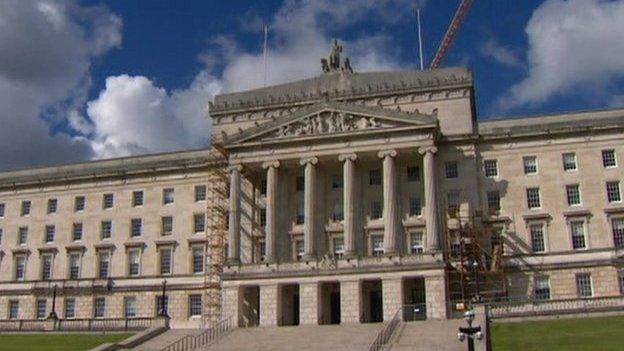Peter Robinson and Martin McGuinness clash over Stormont
- Published
Peter Robinson said the arrangements were "no longer fit for purpose", but Martin McGuinness questioned the motives of the DUP
The DUP and Sinn Féin have clashed over whether Northern Ireland's political institutions are fit for purpose.
Writing in the Belfast Telegraph, external, First Minister Peter Robinson had said arrangements for devolved government were "no longer fit for purpose".
He called for a fresh round of talks to resolve issues including welfare reform.
However, deputy first minister Martin McGuinness questioned the motives of the DUP.
He asked whether Mr Robinson's call was about getting other unionist parties into government.
Mr Robinson said 'St Andrew's Mark Two' talks were needed.
The 2006 St Andrews Agreement paved the way for the return of devolution in May 2007, when the then DUP leader Ian Paisley and Mr McGuinness became first and deputy first ministers, external.
Mr Robinson said the agreement had led to a system that was "time-consuming and sluggish". He said it was a time for "a reality check" and that "hard decisions" had to be taken.
He was referring to Sinn Féin's refusal to sign off on government welfare reform and the subsequent threat of major fines. Northern Ireland faces penalties by the Treasury for not endorsing welfare reforms passed by Westminster in February 2013.
Sinn Féin has led the opposition to the reforms.
Mr Robinson said the cost of going it alone on welfare could rise to £1bn a year, or 10% of Stormont's budget. The first minister said the consequent job losses of thousands of public workers was "not a price Northern Ireland could afford to pay to maintain devolution".
He said it was an issue that could not be "left on the shelf".
"We simply cannot afford in terms of welfare reform to lift up the tab for £1bn a year when we only have a budget for resource expenditure of £10bn," he said.
"We simply couldn't cut by £1,000m the services we give to the people and the people who provide those services within the public sector."
Mr Robinson said he agreed with the right to protest, but now felt that the opposition to reform would hurt people more.
"Maybe the time has come to say we oppose what has happened in principle, but in practical terms, we are not prepared to make the people of Northern Ireland suffer. We will comply in protest, merely as the lesser of two evils."
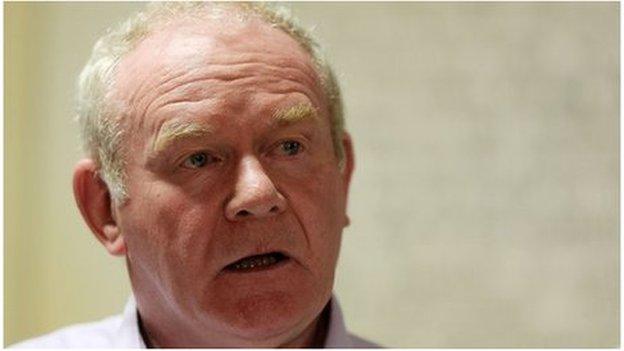
Martin McGuinness asked if this was about getting other unionist parties into government
Mr McGuinness said he wondered how successful any new negotiations might be, given unionist refusal to sign up to the Haass talks on the past, parades and flags.
"We have a scenario where people who have run away from the talks are now proposing new talks," he said.
"Is it about a re-negotiation of the Good Friday Agreement, is it about a re-negotiation of the St Andrews Agreement, is it about voluntary coalition or is it about a return to majority rule?" he asked.
"I hear a clear invitation to parties not on the executive and not represented to any great degree in this assembly to be part of talks - the PUP, the TUV, UKIP and the Orange Order."
The deputy first minister said his party wanted all the parties to come together and to tell the government: "We don't accept their approach to lumping these fines, these huge cuts on ordinary defenceless people placing them in a scenario where their lives are going to be devastated by the changes in social welfare payments."
Both parties said they wanted to resolve the issues for the sake of the people of Northern Ireland.
Northern Ireland Secretary Theresa Villiers said she would be looking carefully at Mr Robinson's proposals, but said Northern Ireland's political leaders needed to address the issues that are blocking effective decision-making.
She said it was vital to find a way forward with welfare reform or there was a real danger the institutions would start to seize up.
- Published9 September 2014

- Published9 September 2014

- Published29 August 2014
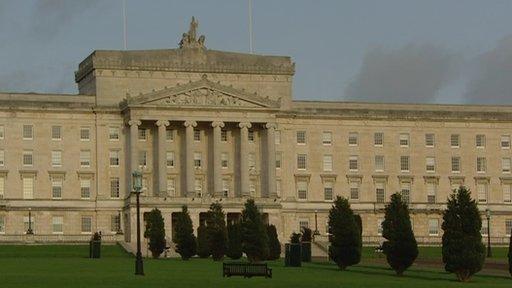
- Published28 August 2014
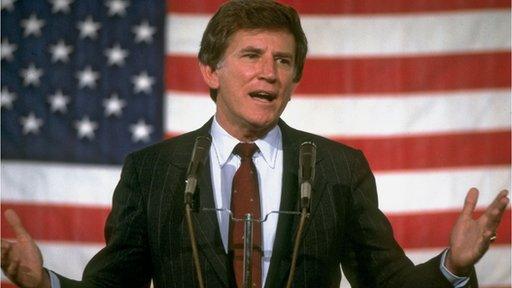
- Published21 August 2014
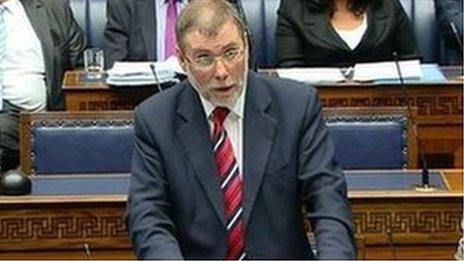
- Published1 August 2014
